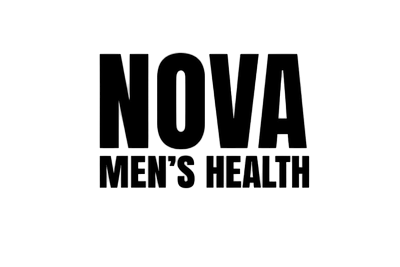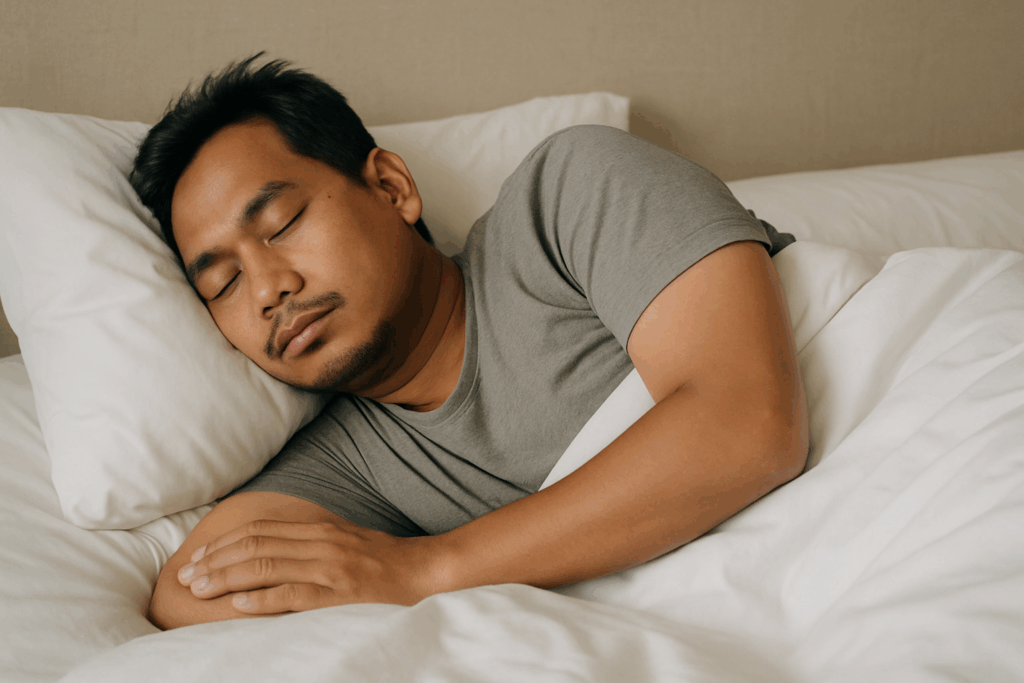Does poor sleep lower testosterone in men?
Yes—sleep and testosterone are closely linked. Most testosterone production happens at night, so poor sleep can disrupt your hormones, leading to low energy, mood changes, and even weight gain. So getting your sleep back on track is very important to improve your testosterone levels and how you feel on a daily basis.
How Sleep Affects Your Testosterone—and Your Testosterone Affects Sleep
Getting solid sleep isn’t just about rest—it’s when your body resets, repairs, and recharges. For men, especially after age 30, sleep and testosterone go hand in hand. At Nova Men’s Health, we often see men from Mumbai, Delhi, Bangalore, and other cities complaining of fatigue, brain fog, poor sleep, and low drive—all signs that hormone balance may be off.
What Happens to Hormones While You Sleep
During sleep, your body regulates key hormones like testosterone, cortisol, and melatonin—all of which play a major role in energy, focus, and emotional balance. Even one night of bad sleep can impact that delicate system.
-
Testosterone is mostly made during deep sleep
-
Cortisol (your stress hormone) should drop at night
-
Melatonin signals your body to wind down and rest
When this rhythm breaks—due to stress, late nights, or poor habits—your hormone levels start falling out of sync.
Testosterone: Built at Night, Broken by Sleep Loss
Deep and REM sleep are when testosterone production peaks. If you’re only sleeping five hours or waking often during the night, your testosterone levels can drop sharply.
One clinical study found that sleeping just five hours a night for one week lowered testosterone by up to 15%. That’s enough to feel real symptoms:
-
Low energy
-
Poor libido
-
Mood swings
-
Slower recovery after workouts
If you’re waking up groggy even after “enough” sleep, low T might be a hidden factor.
Cortisol: When Stress Keeps You Awake
Cortisol is your body’s natural alarm clock. It should peak in the morning and fall at night. But if you’re constantly stressed or not sleeping well, cortisol stays high—even at bedtime.
That leads to:
-
Trouble falling asleep
-
Restless nights
-
Groggy mornings
-
Increased belly fat and blood pressure
High cortisol blocks deep sleep—and blocks testosterone production, too.
Melatonin: Your Natural Sleep Signal
Melatonin is the hormone that tells your body it’s time to rest. It rises after sunset but can be disrupted by blue light from screens, erratic schedules, or late-night meals.
Low melatonin makes it hard to fall or stay asleep—and without deep sleep, testosterone production suffers.
Other Hormones Affected by Poor Sleep
It’s not just testosterone and cortisol. Your entire hormonal system is influenced by sleep:
-
Growth hormone: helps muscle recovery; released during deep sleep
-
Insulin: poor sleep raises your risk of weight gain and blood sugar spikes
If you’re tired all day and not bouncing back like you used to, sleep—and hormones—may both be to blame.
Low Testosterone Makes Sleep Worse, Too
It works both ways. Poor sleep lowers testosterone—and low testosterone makes sleep quality worse.
Men with low T often report:
-
Trouble falling asleep
-
Waking up multiple times a night
-
Feeling tired even after 8 hours in bed
Low T is also linked to sleep apnea, which interrupts breathing and blocks deep rest. Add in irritability or anxiety (common low T symptoms), and your body simply can’t relax.
Can TRT Help Sleep?
For many men, testosterone replacement therapy (TRT) improves sleep by restoring healthy hormone levels. At Nova Men’s Health, our patients often notice:
-
Better sleep within weeks
-
More energy during the day
-
Less nighttime anxiety
-
Fewer sleep disruptions
We offer hormone testing and treatment across India, with labs and doctors available in Mumbai, Delhi, Hyderabad, Chennai, and more.
Signs Your Sleep Problems May Be Hormone-Related
If any of the following sound familiar, it’s time to get tested:
-
You wake up feeling tired, no matter how long you slept
-
You wake up several times a night
-
Your sex drive has dropped
-
Your mood feels unstable—low, anxious, or short-tempered
-
You’re gaining weight or losing muscle without changes in diet or exercise
These aren’t just aging. They’re often signs of hormonal imbalance—especially low testosterone or high cortisol.
How to Improve Your Sleep and Hormone Balance
You don’t need to overhaul your life to sleep better. Try these simple habits:
-
Keep a sleep schedule – Go to bed and wake up at the same time daily
-
Limit screen time – Avoid phones and laptops one hour before sleep
-
Exercise earlier – Morning or afternoon workouts reduce evening cortisol
-
Unwind at night – Avoid stressful conversations, caffeine, or late-night snacks
-
Treat the root cause – Get tested for hormone levels and get medical support if needed
At Nova Men’s Health, we offer affordable, discreet hormone testing and customised treatment plans—so you get real answers and real results.
Break the Sleep–Hormone Cycle
Poor sleep lowers testosterone. And low testosterone ruins good sleep. The longer the cycle goes on, the harder it is to break.
The good news? It’s fixable.
Whether it’s improving your sleep habits, reducing stress, or exploring medical treatment like TRT, you can restore your sleep—and your health.
Tired of waking up tired?
Book your hormone test with Nova Men’s Health today and take the first step to better sleep, better energy, and better living.

